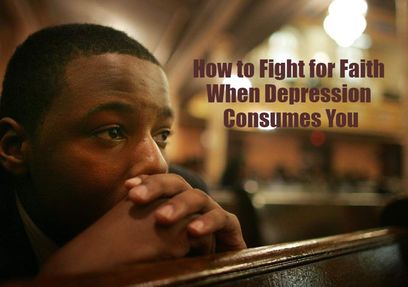
Best-selling author and singer Sheila Walsh has shared how her battle with depression and suicidal thoughts allowed her to experience the power of Jesus — and why the Church must "wake up" to the number of pastors struggling with mental illness.
Walsh, an internationally-known speaker and Bible teacher, recalled to The Christian Post how, twenty-six years ago, she checked herself into the psychiatric ward of a hospital. She was diagnosed with clinical depression, a devastating condition affecting more than 16.1 million American adults.
"At the time, I was serving as the co-host of The 700 Club show on Christian Broadcasting Network," she said. "I knew how to put on a good face and isolate myself from people. I was surrounded by people, a ministry leader, but so desperately lonely and depressed. Up until that point, I'd based so much of God's love on me getting everything right. When you end up in a psych hospital, that platform has been pulled from beneath you."
While at the hospital, Walsh said she was overwhelmed with a sense of God's presence in the midst of her pain. She cried out, "I never knew You lived so close to the floor."
"There was such a profound sense of, 'The Lord is close to the brokenhearted,'" she said. "So often, that's what depression feels like. You feel as if you've been crushed. But in those times, that's when you can experience the presence of the Lord. When things go wrong, we feel as if God has left us or doesn't hear us, but I am learning that even in the darkest places, God's timing is perfect and His presence is promised."
Walsh draws from her experience with depression and mental illness to share eight simple, practical steps to help women move forward one day at a time in her new book It's Okay Not To Be Okay: Moving Forward One Day At A Time.
"After opening up about my own struggles, so many women reached out to me asking for advice," she said. "This isn't a self-help book; it's a God-help book. I don't think self-help is help at all. I wanted to share eight things I've learned in my own life to help others move forward."
One of the most important steps in her journey, Walsh said, was daring to have "gut-level, unedited conversations with God."
"We have this head knowledge that God knows everything, but there's something so healing about pouring your heart out to God, telling Him everything," she said. "We think we have to use certain words, we have to be respectful and careful with God, but what I've discovered, just as the Psalmist David did, that our honesty invites the nearness of God's presence."
There's this "incredibly damaging" misconception in the Church that believers shouldn't struggle with mental illness, Walsh contended.
"So often, when people are already hurting and struggling, we shame them, we make them feel as if there's something wrong with them," she said. "We tell them there's a lack of faith or trust in God, we tell them to pull themselves together. But, it's not a lack of faith; it's a lack of chemicals in your brain to be able to function well."
"I've had way too many conversations with spouses or parents whose child committed suicide because they were told within their church they don't believe in medication; they're told, 'We'll pray for you,'" she continued. "That makes me desperately sad, because mental illness isn't curable, it's treatable. Medication corrects the chemicals in your brain, allowing you to function well and be who God created you to be."
Pastors and ministry leaders, Walsh contended, are particularly susceptible to burnout, depression, and mental illness — and the Church needs to "wake up" and support those in leadership positions amid what she referred to as an "epidemic."
We have this skewed idea of what it means to represent Christ; we think we need to look like the Good News," she said. "We don't. Jesus is the Good News. We need to simply begin having this conversation, acknowledging that this is an issue. We need to be telling our pastors, 'Please don't be ashamed, please don't give up — help is available.'"
Still, the Church has made "great strides" when it comes to the issue of mental health, Walsh said, pointing to the ministry of Saddleback Church pastor Rick Warren and his wife, Kay, who lost their 23-year-old son to suicide several years ago.
"From their unspeakable grief, the Warrens have done so much good," she said. "Their son, Matthew, was a darling boy, but he suffered so deeply from depression. Rick and Kay have such a phenomenal ministry and are leading the way in helping other churches understand mental illness."
Walsh said that one of her favorite quotes comes from theologian Charles Spurgeon, who suffered from extreme clinical depression
"Sometimes, his depression was so severe, he couldn't be on the pulpit for a whole month," she said. "Still, he said, 'I have learned to kiss the waves that throw me up against the rock of ages.'"
"When you understand the life of the man who said that, it's much more profound to me," she continued. "He learned to be grateful for the darkness that plagued him, because it threw him to the arms of Christ."
The author hopes her book will change the stigma surrounding Christians and mental health — and encourages readers to "fall more in love with Jesus."

 RSS Feed
RSS Feed